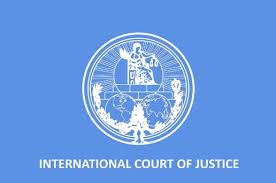
US Supreme Court to Hear Groundbreaking Case on Social Media Algorithms and Free Speech
In what could become a landmark ruling, the United States Supreme Court has agreed to hear a case examining whether social media algorithms are protected under the First Amendment, effectively treating them as editorial speech. This case, brought by a coalition of civil rights groups, challenges platform immunity for algorithmic amplification of harmful content.
What’s the Case About?
The plaintiffs argue that recommendation algorithms used by platforms like Facebook and X (formerly Twitter) have amplified extremist content, contributing to real-world violence. They claim these platforms should be liable for the foreseeable consequences of their algorithmic choices.
What the Platforms Say
• Platforms claim algorithms are neutral tools, just automating user preferences.
• They invoke Section 230 of the Communications Decency Act, which shields platforms from liability for content posted by users.
• They further argue that algorithmic curation itself is speech, deserving the same First Amendment protection granted to newspaper editorial choices.
What’s at Stake
• A ruling against the platforms could upend social media business models based on engagement-driven algorithms.
• A ruling favoring the platforms could entrench Section 230 immunity, making it nearly impossible to hold platforms accountable for content they amplify.
• The case could set precedent for algorithmic liability globally, influencing laws in Europe, India, and beyond.
Global Relevance
Countries like India, currently drafting its Digital India Act, will closely watch how the US Supreme Court balances platform liability and free speech. The outcome could shape global regulatory trends for years to come.
Article 22: India — SEBI Tightens Rules on IPO Disclosures to Protect Retail Investors
(Style: Analysis Report)
In a significant move aimed at strengthening investor protection, the Securities and Exchange Board of India (SEBI) has introduced stricter disclosure norms for companies launching Initial Public Offerings (IPOs). This step comes in response to concerns over opaque disclosures, exaggerated projections, and a series of underperforming IPOs that left retail investors exposed to financial risks.
Key Changes in Disclosure Rules
The new framework mandates:
• Detailed Risk Disclosures: Companies must disclose sector-specific risks, historical litigations, and promoter background more comprehensively.
• Clear Use of Proceeds: Firms must now provide a breakdown of exactly how IPO funds will be utilized, eliminating vague general corporate purposes.
• Track Record of Price Discovery: If the company has conducted pre-IPO placements, the pricing rationale and discounts offered to institutional investors must be disclosed.
Why This Matters
In the past two years, India’s IPO market has boomed, but many newly listed companies have failed to meet earnings expectations, leaving retail investors disillusioned. By enhancing transparency, SEBI aims to restore trust in primary markets.
Expert Commentary
Financial analysts have welcomed the move, emphasizing that better disclosures will empower investors to make informed decisions. Legal experts also point out that stricter disclosure norms align Indian regulations with global best practices, improving India’s appeal to international investors












comments